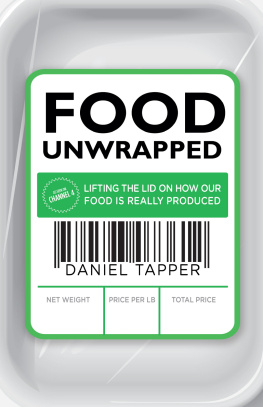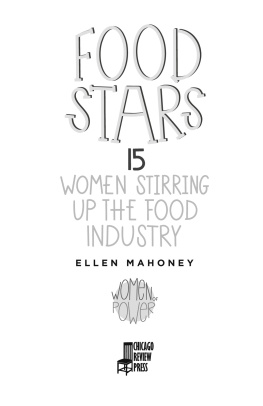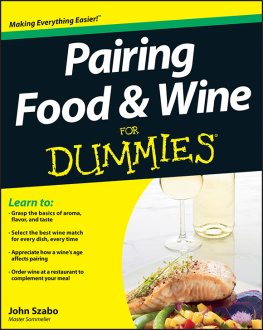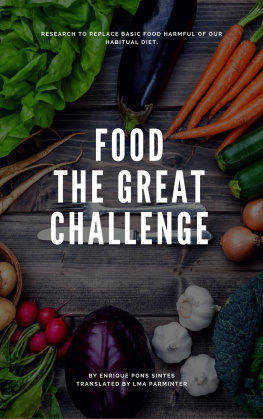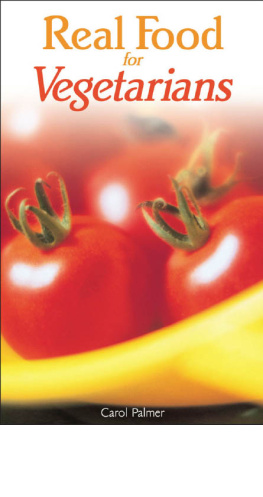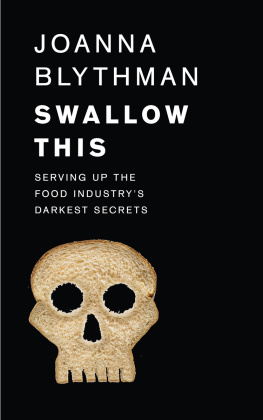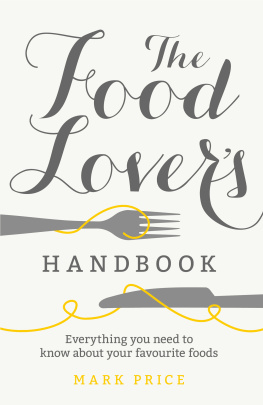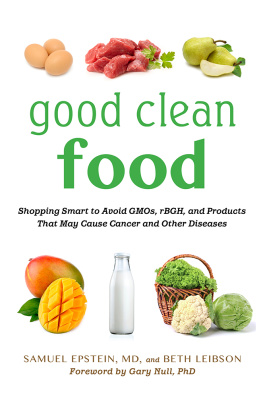Contents

TRANSWORLD PUBLISHERS
6163 Uxbridge Road, London W5 5SA
www.transworldbooks.co.uk
Transworld is part of the Penguin Random House group of companies whose addresses can be found at global.penguinrandomhouse.com

First published in Great Britain by Bantam Press
an imprint of Transworld Publishers
Copyright Warner Bros Television Production UK Limited 2015
Daniel Tapper has asserted his right under the Copyright, Designs and Patents Act 1988 to be identified as the author of this work.
Every effort has been made to obtain the necessary permissions with reference to copyright material, both illustrative and quoted. We apologize for any omissions in this respect and will be pleased to make the appropriate acknowledgements in any future edition.
Food Unwrapped is produced for Channel 4 by Ricochet Limited, a Warner Bros Television Production UK Limited company.
The information in this book is believed to be correct as at January 2015, but is not to be relied on in law and is subject to change. The author and publishers disclaim, as far as the law allows, any liability arising directly or indirectly from the use, or misuse, of any information contained in this book.
A CIP catalogue record for this book is available from the British Library.
Version 1.0 Epub ISBN 9781473508422
ISBN 9780593073612
This ebook is copyright material and must not be copied, reproduced, transferred, distributed, leased, licensed or publicly performed or used in any way except as specifically permitted in writing by the publishers, as allowed under the terms and conditions under which it was purchased or as strictly permitted by applicable copyright law. Any unauthorized distribution or use of this text may be a direct infringement of the authors and publishers rights and those responsible may be liable in law accordingly.
1 3 5 7 9 10 8 6 4 2
Introduction
Britain once the culinary backwater of the world has unwittingly become a nation of foodies. These days you cannot open a magazine, peruse a web page or turn on a television without being bombarded with images of succulent food, celebrity chefs or amateur competitive cook-offs.
The shelves of our supermarkets are spilling over with exotic ingredients, gastro-style ready meals and specialist foods to suit a plethora of dietary needs and fads; our cities boast a liturgy of European-style delis, specialist butchers, cafs and restaurants that would make a Parisian weep with jealousy. And British cuisine, long consigned to the culinary doldrums, is basking in glory as well-known chefs rediscover and reinvent some of the countrys most iconic dishes.
Our insatiable obsession with all things food seems to be paying off. According to one recent survey, most of us now boast a hearty repertoire of around a dozen dishes we can cook without the aid of a recipe, while dishes we once agreed were best left to professionals (risottos, cheese souffls and coq au vin, to name but a few) are being bashed out on a daily basis the nation over. Not bad for a country whose list of culinary staples once comprised Smash, Spam and Bovril.
So we know how to cook. Or at least were a lot better at it than we once were. But how many of us actually know how our favourite foods are made? Not how they can be combined with other ingredients to make a dish, but where they originate, who invented them, how they are processed, the ways in which they affect our bodies and the science behind their flavours.
When it comes to questions like these, it could be argued that weve never known less about the food on our plate. This is hardly surprising. Thanks to the burgeoning influence of globalization, the meals we eat increasingly feature ingredients from almost every continent on earth, including countries some of us have never even heard of. And huge leaps in the arenas of science and food technology mean that even the most innocuous-looking foods can harbour hundreds of highly complex ingredients that nobody but scientists would have a hope of pronouncing let alone understanding. If that werent perplexing enough, we are constantly bombarded with wildly conflicting dietary advice relating to the health effects of different foods.
Food Unwrapped is all about cutting through the marketing babble and sensationalist media reports to once and for all set the record straight when it comes to the food on your plate. Its about answering those niggling questions youve always wanted to ask or have asked but have never quite got to the bottom of. But most importantly, its about telling the amazing tale of food and the ingenious ways in which humans have spent the last several thousand years smoking, salting, stewing, brewing, brining, blending and distilling their way into the twenty-first century giving rise to the foods we all consume today. Think champagne is a French invention? Think again. Convinced all artificial foods are bad for you? Dont be so sure. Burning to find out the origin of probiotic bacteria? You might not want to know
1
Is it OK for a vegetarian to drink beer?
IT S SAFE TO say that Brits quite like their beer. In the UK we get through nearly six billion litres of the stuff a year. Thats a staggering 93 litres per person. And despite being at the tail end of one of the worst recessions in history we still manage to cobble together an incredible 17 billion a year to spend on it (worryingly, thats more than were prepared to expend on fruit and vegetables).
Think thats impressive? Our forefathers make us sound like teetotallers. In medieval Britain beer was drunk like water. Literally. The water in towns and cities was so polluted it was undrinkable. Therefore beer, which is sterilized during production, became not just a valuable source of nutrients but a safe source of hydration, too. According to the eminent twelfth-century historian William of Malmesbury, the English turned up for the Battle of Hastings so drunk they attacked the Normans more with rashness and precipitate fury than with military skill.
Britains love affair with all things beer refused to wane even with the enlightenment brought by the Industrial Revolution. Not content with creating the worlds biggest and fastest trains, lathes and steam engines, Brits turned their technical ingenuity to brewing. Beer vats became so ambitiously massive that one particularly large vessel at Londons Meux Brewery exploded in 1814, sending a tidal wave of beer through the West End so large it destroyed entire houses and killed eight people.
Not that this dampened our appetite. Beer was so important to British morale during the Second World War that the mine-laying ship HMS Menestheus was converted into a floating brewery to supply beer to Allied troops. And by 1979 Britain had officially invented the binge drinker. That year over 120,000 Brits were arrested for drunkenness more than at any other time in recorded history and four times the number of people arrested in 2012.
With such a long and, arguably, impressive history of beer swilling youd think wed know exactly what goes into a pint. Beer has always been made in the same way, right? You take hot water, add it to malted barley, drain away the hot sugary liquid (or wort), boil it with hops and then leave it to ferment with yeast. Simple.
In reality, brewers have long been adding unusual ingredients to their beer, many of which come from animals. Honey, for example, has been used in brews since around 2000 BC and continues to be used today thanks to its high fermentability. And lets not forget cock ale, a popular tipple in eighteenth-century England made with a parboiled, skinned and gutted cock, along with various fruits and spices. In his book
Next page
